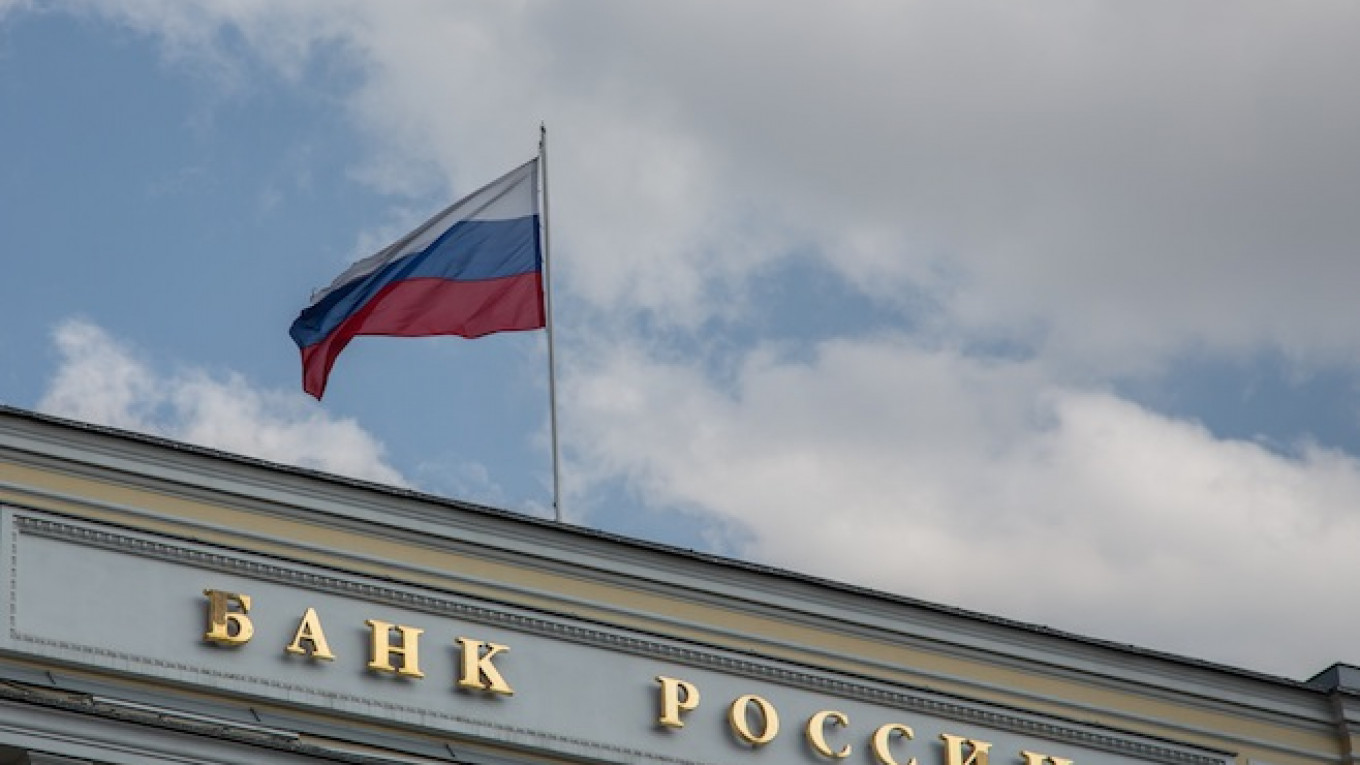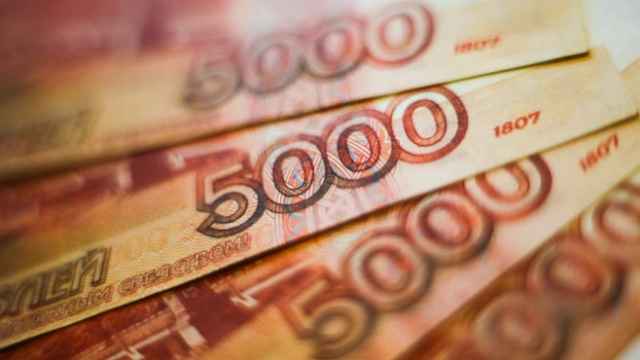Russia's Central Bank cut its key interest rate by 0.5 percent to 11 percent on Friday, as expected, citing a cooling economy that it said outweighed inflation risks.
But mixed rhetoric accompanying the decision has added to uncertainty about the bank's next moves. The bank has effectively widened its options to respond either to a more severe economic slump or a further slide in the ruble.
Both now seem more likely than they did in the first half of the year. Oil prices briefly rebounded then, promising some relief for Russia's economy and currency, battered by last year's oil price slump and sanctions linked to the Ukraine conflict.
The resulting financial stabilization has let the bank cut rates this year by a total of six percentage points, including Friday's move. But a renewed oil price slump and global economic jitters are complicating its job, fueling a renewed sell-off in the ruble — which weakened further after the latest rate cut.
In its accompanying statement, the bank played down a recent pick-up in inflation, focusing instead on the economic downturn, which the bank said may lead it to revise down its output forecasts.
"The balance of risks shifts toward the considerable economic cooling despite a slight increase in inflation risks," the bank said.
But the bank also removed a phrase saying that it was ready to lower rates in line with falling inflation in future. Some analysts interpreted that as a sign it may now be more cautious about rate cuts.
"The Central Bank removed the phrase about lowering rates in future, in order to reserve the possibility of omitting a rate cut at the September meeting," VTB Capital economist Alexander Isakov said.
ING economist Dmitry Polevoy saw the statement as confirming a dovish bias to policy, with the bank shifting toward its more pessimistic outlook that assumes continued low oil prices.
"Even though the short-term turbulence in the ruble due to the lower oil price may keep the CBR cautious, we think the trend for the key rate is clearly down," he said.
Ruble Slide
Analysts had expected a cautious half-point cut rather than a bigger one because a recent slide in the ruble threatens to reignite inflation. But the ruble, already down over 1 percent before the Central Bank decision, still fell after the cut.
Nicholas Spiro, managing director at Spiro Sovereign Strategy, criticized the decision to cut rates with inflation high and the ruble weak.
"This chips away further at the credibility of the Russian Central Bank," he said. "The prudent course of action would have been to leave rates on hold."
The ruble fell sharply even though the Central Bank also said separately that its suspension of forex purchases would support the ruble in the third and fourth quarters — implying the suspension will continue for months.
The bank had been buying up to $200 million on the forex market daily, but halted the purchases this week — a signal that it is worried about the ruble's weakness.
"The decision to stop FX purchases announced on July 29 indicated that the CBR does not want the exchange rate to go lower than 60-65," Alfa Bank economist Natalya Orlova said.
"If oil prices deteriorate further, or there is additional flight to the dollar, we believe that the CBR might keep the policy rate unchanged in 2015."
Inflation, meanwhile, accelerated to 15.8 percent as of July 27, up from 15.3 percent in June. The bank said that was a temporary result of utility tariff increases and inflation would fall to 7 percent in July 2016 and to 4 percent in 2017, meeting the bank's target.
The bank appeared much more worried about economic growth. An unexpectedly severe contraction in domestic demand in the first half of 2015, it said, meant that it may lower its output forecast for a 3.2 percent GDP contraction in 2015.
"The scenario with oil prices remaining below $60 per barrel for a long time is more probable than it was in June," the bank said.
A Message from The Moscow Times:
Dear readers,
We are facing unprecedented challenges. Russia's Prosecutor General's Office has designated The Moscow Times as an "undesirable" organization, criminalizing our work and putting our staff at risk of prosecution. This follows our earlier unjust labeling as a "foreign agent."
These actions are direct attempts to silence independent journalism in Russia. The authorities claim our work "discredits the decisions of the Russian leadership." We see things differently: we strive to provide accurate, unbiased reporting on Russia.
We, the journalists of The Moscow Times, refuse to be silenced. But to continue our work, we need your help.
Your support, no matter how small, makes a world of difference. If you can, please support us monthly starting from just $2. It's quick to set up, and every contribution makes a significant impact.
By supporting The Moscow Times, you're defending open, independent journalism in the face of repression. Thank you for standing with us.
Remind me later.






